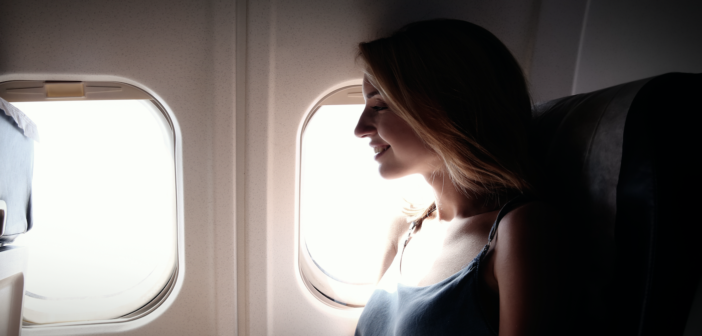Passenger wi-fi use and confidence grows

Figures from Inmarsat’s annual passenger survey report show that passengers are eight-times more confident in air travel in 2022 than this time last year – with a confidence level of 83%, versus just 10% in late summer 2021. The survey of over 11,000 air travellers in 10 countries (UK, Brazil, Germany, UAE, Saudi Arabia, South Korea, India, Australia, USA and Singapore) found that they were feeling a strong desire to fly again post-pandemic. The sentiment is true across the globe, with passengers from Brazil (a 90% level), Saudi Arabia (94%) and the UAE (92%) being the most confident the UK close to average (81%), and South Korea the least confident, at 53%.
The survey also found that travel tastes have altered slightly over the past two years, with a rise in ‘hybrid’ passengers adding leisure to their business travel – ‘bleisure’ as it has become known. As shifting work patterns have allowed greater flexibility in working location, passengers are now more likely to travel more as they can work anywhere with an internet connection.
Another takeaway from the survey by the inflight connectivity company was that there is a surge in demand for cabin wi-fi. 97% of passengers use personal devices such as tablets or smartphones when flying, and thus 77% said that inflight wi-fi is important to them (a 40% growth since 2018). However, wi-fi is a tricky revenue proposition for airlines, as 47% of respondents said that having to pay for wi-fi may put them off connecting, and 83% think wi-fi should be free to access on long-haul flights – 47% think it should be a free service on short-haul routes.
There are indirect opportunities for airlines though, as 82% of passengers globally said they would rebook with an airline that offered quality inflight wi-fi, with 92% of business travellers and 90% of parents with children aged under 18 agreeing. Just 67% agreed before the pandemic, demonstrating how much more important inflight wi-fi has become to passenger satisfaction.
Passengers may be willing to compromise for the service though, with 38% saying they would watch adverts when connected, while 32% would give up alcoholic beverages onboard if it made the service more viable for airlines. Social media and entertainment topped the list for what passengers want to do while connected onboard, and 30% said they would pay more for unlimited social media usage while flying, while 25% would pay more for unlimited downloads.
Niels Steenstrup, president of Inmarsat Aviation, said of the survey, “Not only can inflight connectivity help airlines attract new customers and keep existing ones happy, but it also opens the door to new revenue-generation opportunities for airlines to support the industry’s ongoing recovery. We’ve been tracking the desire for inflight connectivity for years and can see it shows no signs of slowing down. Reliable wi-fi is undoubtedly fundamental to an excellent passenger experience. Giving passengers the flying experience they want and focusing on providing quality wi-fi for those who want to work or play while onboard, will be the gift that keeps on giving for passengers and for airlines.”
There are also opportunities for in-seat power companies. When it’s available, 79% of passengers will connect to the onboard wi-fi system, but only 5% say they’re able to make the most of this connectivity. Topping the wish list for 51% of passengers was greater availability of charging ports onboard to ensure their devices are charged up for entertainment, work, shopping and more, while 35% want access to real-time flight updates throughout their journey.
